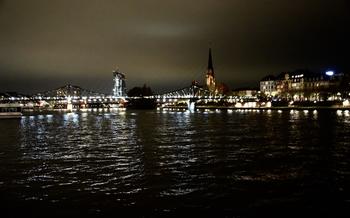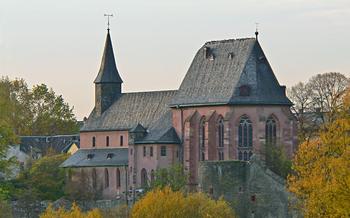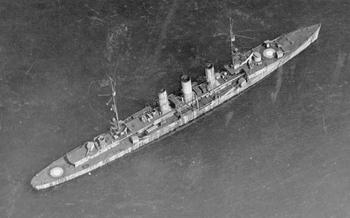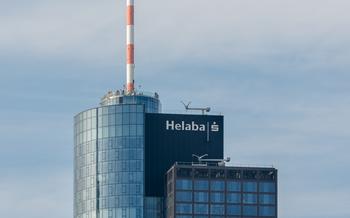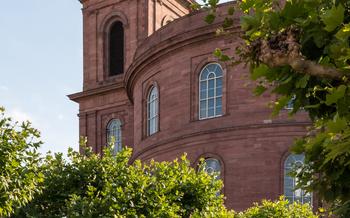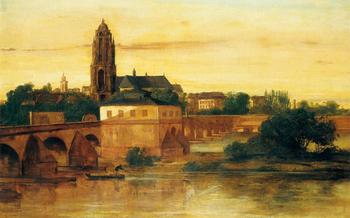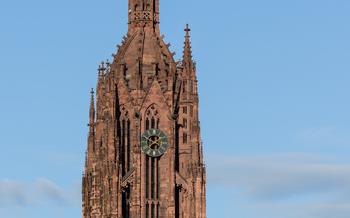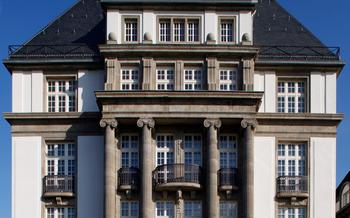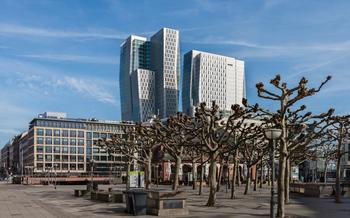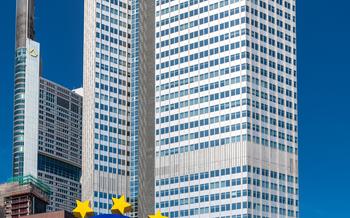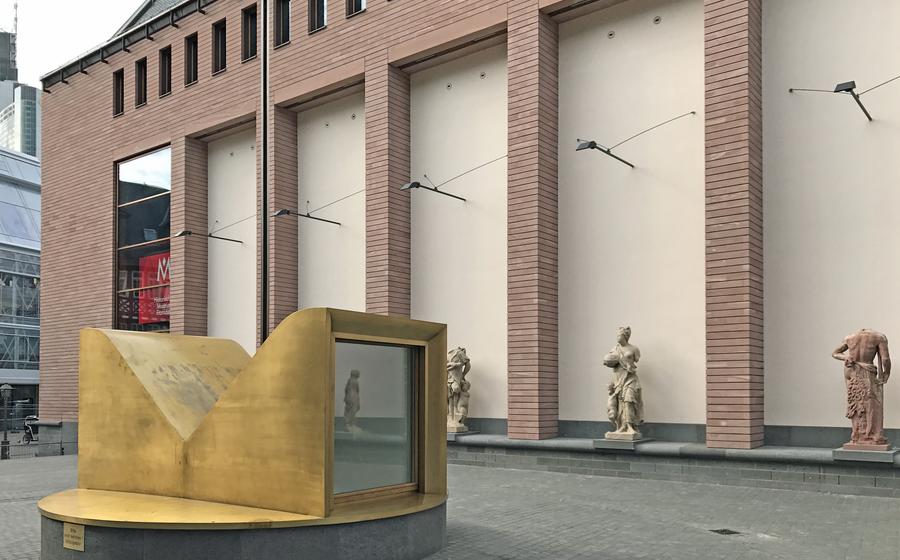
Historical Museum Frankfurt
- Historical Museum Frankfurt: A Journey Through Time
- Location and Accessibility
- Museum Hours and Admission Fees
- Guided Tours and Educational Programs
- Exploring the Permanent Exhibitions
- Highlights of the Collection
- Temporary Exhibitions and Special Events
- Interactive Displays and Hands-on Activities
- Uncovering Frankfurt's Past Through Artifacts
- Architecture and Historical Significance
- Educational Programs and Workshops
- Museum Shop and Publications
- Accessibility and Facilities for Visitors
- Planning Your Visit: Tips for a Rewarding Experience
- Getting to the Historical Museum Frankfurt
- Nearby Attractions and Points of Interest
- Photography and Social Media
Historical Museum Frankfurt: A Journey Through Time
The Historical Museum Frankfurt is a treasure trove of Frankfurt's rich past. Located in the heart of the city, the museum offers a comprehensive journey through time, from the city's ancient origins to its modern transformation into a vibrant metropolis. Through its vast collection of artifacts, interactive displays, and educational programs, the museum invites visitors to delve into Frankfurt's fascinating history and uncover the stories that have shaped the city's identity.
Location and Accessibility
The Historical Museum Frankfurt is conveniently situated in the Altstadt (Old Town), within easy walking distance from the Römerberg, the city's historic center. The museum is well-connected by public transportation, with several tram and bus lines stopping nearby. For those arriving by car, there are several parking garages located within a short distance from the museum.
Museum Hours and Admission Fees
The Historical Museum Frankfurt is open Tuesday to Sunday from 10 am to 6 pm. Admission fees are €8 for adults, €6 for seniors and students, and free for children under 1The museum offers family tickets and group discounts.
Guided Tours and Educational Programs
The Historical Museum Frankfurt offers a range of guided tours and educational programs tailored to visitors of all ages and interests. Guided tours are available in German and English and can be booked in advance or arranged on-site. The museum also offers educational programs for schools and groups, as well as workshops and lectures on various historical topics.
Exploring the Permanent Exhibitions
The Historical Museum Frankfurt takes visitors on a chronological journey through the city's rich and diverse past. The permanent exhibitions are organized into three main sections: Ancient Frankfurt, Medieval Frankfurt, and Modern Frankfurt.
Ancient Frankfurt
This section features archaeological finds from the city's earliest days, including tools, weapons, and pottery from the Stone Age and Bronze Age. Visitors can also learn about the Roman settlement that existed on the site of Frankfurt from the 1st to the 3rd century AD.
Medieval Frankfurt
The medieval period was a time of great importance for Frankfurt, as it became a free imperial city and one of the most important trading centers in Europe. This section of the museum features artifacts and documents from this era, including coins, seals, and manuscripts. Visitors can also see a model of the city as it appeared in the 15th century.
Modern Frankfurt
The modern era has seen Frankfurt grow into a major metropolis and financial center. This section of the museum traces the city's development from the Industrial Revolution to the present day. Visitors can learn about the city's role in the German Empire, the Weimar Republic, and the Nazi era. They can also see exhibits on the city's reconstruction after World War II and its rise to prominence as a global financial center.
Highlights of the Collection
The Historical Museum Frankfurt boasts a treasure trove of artifacts and exhibits that offer a glimpse into the city's rich history and cultural heritage. Among the highlights of the collection is the Frankfurt Treasure, a stunning collection of medieval goldsmithing that dates back to the 14th century. The treasure comprises over 600 pieces of exquisite craftsmanship, including goblets, plates, and jewelry, and is considered one of the most important goldsmithing collections in Germany.
Another highlight is the Römerberg Model, a detailed miniature replica of Frankfurt's historic city center as it appeared in the 18th century. The model, which measures over 10 meters in length, is a masterpiece of craftsmanship and provides a fascinating glimpse into the city's past. Visitors can marvel at the intricate details of the model, which depicts the city's famous landmarks, such as the Römer, the Paulskirche, and the Main River.
Finally, the Goethe Room is a must-see for any visitor interested in the life and works of Frankfurt's most famous son, Johann Wolfgang von Goethe. The room features a collection of personal belongings, manuscripts, and portraits of Goethe, as well as exhibits that explore his literary achievements and his influence on German culture.
Temporary Exhibitions and Special Events
In addition to its permanent exhibitions, the Historical Museum Frankfurt hosts a variety of temporary exhibitions throughout the year. These exhibitions focus on a wide range of historical topics, from the city's medieval past to its modern development.
Temporary exhibitions are a great way to learn about new aspects of Frankfurt's history and to see rare and unique artifacts. They often feature interactive displays, hands-on activities, and educational programs for visitors of all ages.
The museum also hosts lectures, workshops, and other special events throughout the year. These events provide an opportunity to learn more about the museum's collection and to engage with experts in the field of history.
Information on current and upcoming exhibitions and events is available on the museum's website. Visitors are encouraged to check the website regularly to stay up-to-date on the latest offerings.
Interactive Displays and Hands-on Activities
The Historical Museum Frankfurt is not just a place to passively observe history; it also offers a variety of interactive displays and hands-on activities that bring the past to life. Visitors of all ages can engage with the museum's collection through touchscreens, multimedia presentations, and hands-on exhibits.
Children and families will particularly enjoy the museum's interactive learning center, which features a range of activities designed to engage young minds. Kids can dress up in historical costumes, play games, and solve puzzles while learning about Frankfurt's rich history.
The museum also offers a variety of educational programs and workshops throughout the year. These programs are designed to provide visitors with a deeper understanding of specific historical topics and are often led by experts in the field.
Whether you're a history buff or simply looking for a fun and educational experience, the Historical Museum Frankfurt has something to offer everyone. With its interactive displays, hands-on activities, and educational programs, the museum is a great place to learn about Frankfurt's past and have fun at the same time.
Uncovering Frankfurt's Past Through Artifacts
The Historical Museum Frankfurt houses a vast collection of artifacts that provide a tangible connection to the city's rich history. Ancient tools and weapons offer a glimpse into the lives of Frankfurt's earliest inhabitants, while medieval manuscripts and documents shed light on the city's imperial past. Historical maps and paintings capture the changing cityscape over the centuries, and personal belongings and everyday objects from different eras offer insights into the daily lives of Frankfurt's residents.
Among the most intriguing artifacts are the remains of a Roman villa discovered during excavations in the city center. These fragments of mosaic floors, wall paintings, and household objects provide a glimpse into the lives of the wealthy Romans who once called Frankfurt home. Another highlight is the collection of medieval seals, which were used to authenticate documents and mark ownership. These intricate and often beautifully crafted seals offer a fascinating glimpse into the medieval world of trade and commerce.
The museum also houses a significant collection of weaponry, including swords, spears, and armor. These artifacts provide insights into Frankfurt's military history, from the city's role in the Thirty Years' War to its defense against Napoleon's armies. Visitors can also admire a collection of historical musical instruments, including a beautifully preserved 18th-century harpsichord.
These artifacts, and many more, combine to tell the story of Frankfurt's rich and diverse past. By exploring the museum's collection, visitors can gain a deeper understanding of the forces that have shaped this vibrant city.
Architecture and Historical Significance
The Historical Museum Frankfurt is housed in a former monastery, the Karmelitenkloster, which dates back to the 13th century. The monastery was built on the site of a former Jewish cemetery, which was destroyed during the pogroms of 134The monastery was dissolved in 1803, and the building was used for various purposes before becoming a museum in 187
The museum building is an impressive example of Gothic architecture, with its pointed arches, ribbed vaults, and stained glass windows. The exterior of the building is decorated with sculptures and reliefs, which depict scenes from the Bible and the history of Frankfurt. The interior of the building is equally impressive, with its high ceilings, grand staircases, and spacious halls.
The Historical Museum Frankfurt is a significant landmark in Frankfurt, and it plays an important role in preserving the city's cultural heritage. The museum's collection includes artifacts from all periods of Frankfurt's history, from its early beginnings as a Roman settlement to its development as a major trading center and financial hub. The museum also hosts a variety of temporary exhibitions, which focus on different aspects of Frankfurt's history and culture.
Educational Programs and Workshops
The Historical Museum Frankfurt offers a wide range of educational programs and workshops designed to immerse visitors of all ages in the city's rich history. These programs are led by experienced educators and historians who bring the past to life through interactive presentations, hands-on activities, and thought-provoking discussions.
For children and families, the museum offers a variety of workshops and activities that make learning about history fun and engaging. These programs may include storytelling sessions, craft activities, and interactive games that allow children to experience history firsthand.
Adults can also benefit from the museum's educational offerings. Guided tours are available on a variety of topics, tailored to specific interests and age groups. These tours provide an in-depth look at the museum's collection and the city's history, led by knowledgeable and passionate guides.
The museum also offers workshops and lectures for adults, covering various historical themes. These programs provide an opportunity for participants to delve deeper into specific topics and engage with experts in the field.
To book an educational program or workshop, visitors can contact the museum's education department. Information about upcoming programs and workshops is available on the museum's website.
Museum Shop and Publications
The Historical Museum Frankfurt offers a well-stocked museum shop where visitors can purchase a variety of items related to the city's history and culture. The shop carries a wide selection of books, souvenirs, and replicas, including historical maps, postcards, and reproductions of artifacts from the museum's collection.
Visitors can also find a range of museum publications, including catalogs of past and current exhibitions, as well as books on various aspects of Frankfurt's history. The museum shop is a great place to pick up a unique souvenir or gift, or to learn more about the city's rich history.
Museum publications are available for purchase at the museum shop and online. The museum also offers a variety of educational resources, such as activity sheets and lesson plans, for teachers and students.
Accessibility and Facilities for Visitors
The Historical Museum Frankfurt is committed to ensuring a welcoming and accessible environment for all visitors. The museum is wheelchair accessible, with ramps and elevators providing access to all floors. Audio guides are available in multiple languages, and multilingual materials are provided to assist visitors from different linguistic backgrounds.
For the convenience of visitors, the museum offers a cloakroom and lockers to store personal belongings. This service is especially useful for those who wish to explore the museum without carrying heavy bags or backpacks.
The museum also provides a range of facilities to enhance the visitor experience. A café offers a selection of refreshments, including hot and cold drinks, snacks, and light meals. A museum shop sells a variety of souvenirs, books, and publications related to Frankfurt's history and culture.
Planning Your Visit: Tips for a Rewarding Experience
To make the most of your visit to the Historical Museum Frankfurt, here are some helpful tips to consider:
-
Recommended length of visit: Plan to spend at least two hours to fully explore the museum's permanent and temporary exhibitions. If you're particularly interested in history or have children with you, allow for more time.
-
Best time to visit: To avoid crowds, aim to visit the museum during the week, especially in the morning. Weekends and holidays tend to be busier.
-
Tips for visiting with children: The museum offers a variety of interactive displays and hands-on activities that are perfect for kids. Look for the special family tours and workshops that are offered regularly.
-
Tips for visiting in a group: Guided tours are available for groups of all sizes, and they can be tailored to your specific interests. Advance booking is recommended to secure your preferred time and date.
Getting to the Historical Museum Frankfurt
Reaching the Historical Museum Frankfurt is a breeze, thanks to its convenient location in the heart of the city. Whether you prefer the ease of public transportation or the flexibility of driving, there are multiple options to choose from.
For those who prefer to leave their car at home, the museum is well-connected by public transportation. Numerous bus and tram lines stop nearby, making it easy to get there from any part of the city. Simply check the schedules and routes to find the best connection for your journey.
If you're driving, there are several parking garages within walking distance of the museum. The closest one is the Römerberg Parking Garage, located just a few steps away. Other options include the Dom-Römer Parking Garage and the Hauptwache Parking Garage.
Once you arrive at your chosen parking garage, follow the signs or use a navigation app to find your way to the museum. The Historical Museum Frankfurt is situated on Saalgasse 19, right in the historic city center.
Nearby Attractions and Points of Interest
In the vicinity of the Historical Museum Frankfurt, a wealth of other cultural treasures and historical landmarks awaits exploration. Just a short walk away, the Römerberg, the heart of Frankfurt's Old Town, enchants visitors with its picturesque half-timbered houses, the Römer city hall, and the stunning Gothic architecture of St. Paul's Church. For those seeking artistic inspiration, the Städel Museum, with its world-renowned collection of paintings, sculptures, and drawings, is a must-visit.
Just across the Main River, the Museumsufer, or Museum Embankment, beckons with a lineup of prestigious museums, including the German Film Museum, the Museum of Applied Arts, and the Liebieghaus Sculpture Collection. Here, visitors can embark on a journey through the history of cinema, delve into the world of design, and marvel at ancient sculptures from around the globe.
For a leisurely stroll, the Main River Embankment Promenade offers panoramic views of the city skyline and invites visitors to relax amidst beautifully landscaped gardens. Along the way, they can admire the Iron Bridge, a symbol of Frankfurt's industrial heritage, and the Eiserner Steg, a pedestrian bridge that leads to Sachsenhausen, a vibrant district known for its traditional Apfelwein taverns.
Photography and Social Media
The Historical Museum Frankfurt encourages visitors to capture and share their museum experiences through photography and social media. Taking photos is allowed in most areas of the museum, with the exception of certain temporary exhibitions or sensitive artifacts. Please be respectful of other visitors and avoid using flash photography or tripods.
Use the hashtag #HistoricalMuseumFrankfurt to share your photos on social media and connect with other museum enthusiasts. You can also tag the museum's official accounts @historischesmuseumfrankfurt to share your highlights with the museum team.
The museum's social media channels offer a wealth of information, behind-the-scenes glimpses, and engaging content. Follow the museum on Facebook, Instagram, and Twitter to stay up-to-date on upcoming exhibitions, events, and educational programs.
Share your unique perspectives and experiences of the Historical Museum Frankfurt with the world. Your photos and insights can help inspire others to discover the rich history and cultural heritage of this vibrant city.
